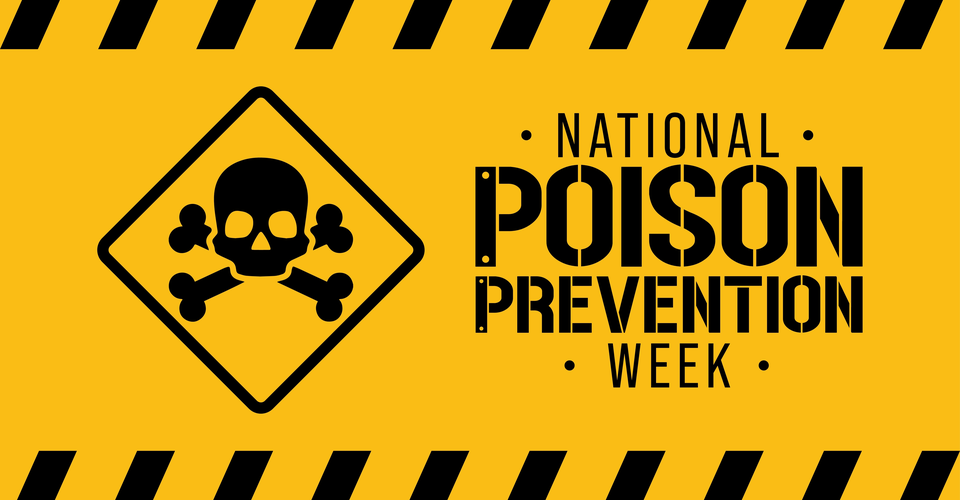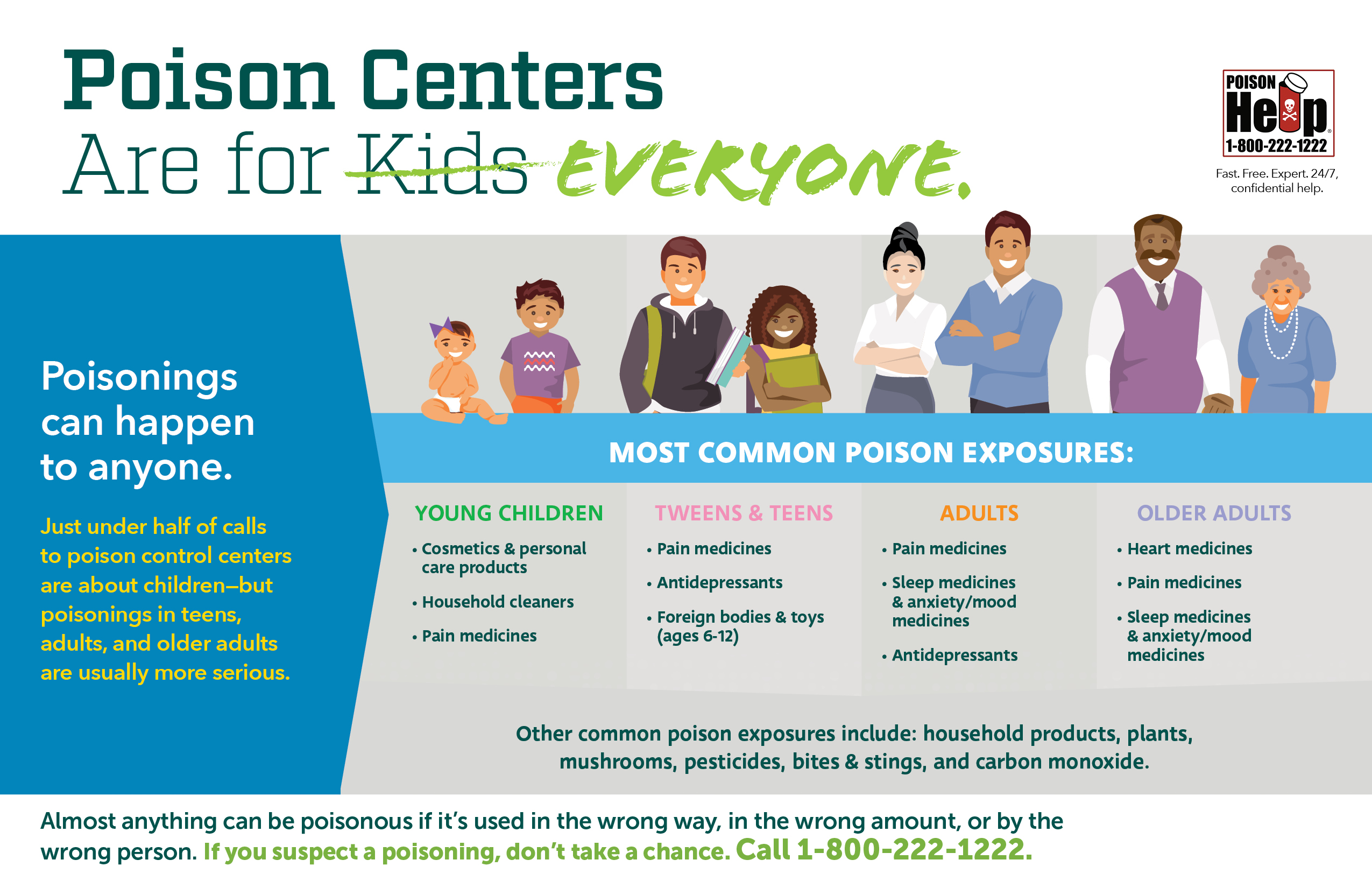The third full week of March is National Poison Prevention Week (NPPW). This serves as a time to shine a light on the dangers of poisonings for people of all ages and promote the importance of poisoning prevention.
Poison prevention awareness
According to the American Association of Poison Control Centers (AAPCC), 55 poison centers across the country field millions of calls each year. Many calls are related to individuals encountering dangerous or potentially dangerous substances. However, poison control centers regularly provide general information and answer poison-related questions even if the call isn’t about an immediate concern.
People often picture young children when thinking about the risk of accidental poisonings. But poisonings can happen to anyone, including teens, adults and older adults.
The most common poison exposures based on AAPCC data includes:
-
Young children – Cosmetics and personal care products, household cleaners and pain medicines
-
Tweens and teens – Pain medicines, antidepressants, foreign bodies and toys (ages 6 to 12)
-
Adults – Pain medicines, sleep medicines and anxiety/mood medicines, antidepressants
-
Older adults – Heart medicines, pain medicine, sleep medicines and anxiety/mood medicines
Other common exposures include household products, plants, mushrooms, pesticides, bites and stings, and carbon monoxide.
If you suspect a poisoning or need general assistance, don’t hesitate to call the Poison Help Hotline at 1-800-222-1222.
How to get involved with Poison Prevention Week
AAPCC is hosting virtual events from March 20 to 26 via its Facebook page. Additionally, it has provided online activities for children and adults of all ages.
Here’s a sample of resources designed to bring awareness to poison prevention:
We also encourage you to read our blog based on one of our Instructor’s experiences with calling poison control. It demonstrates just how easy, convenient and non-judgmental it can be to use this free service.








.png?width=600&name=HSI-CTA-EmergencyCareTraining%20(1).png)











Comments